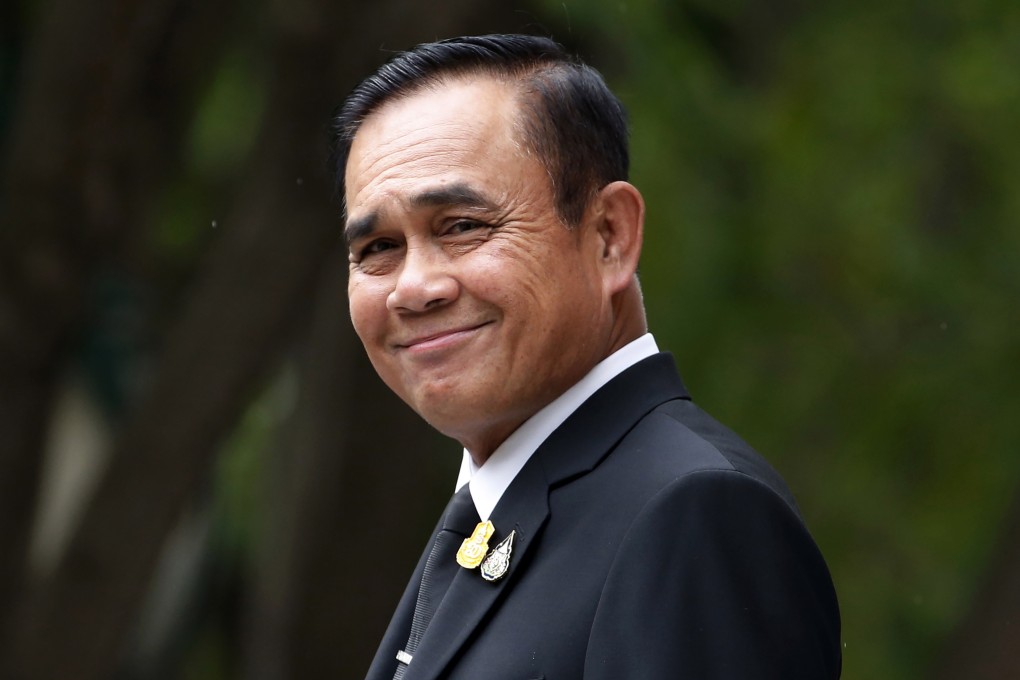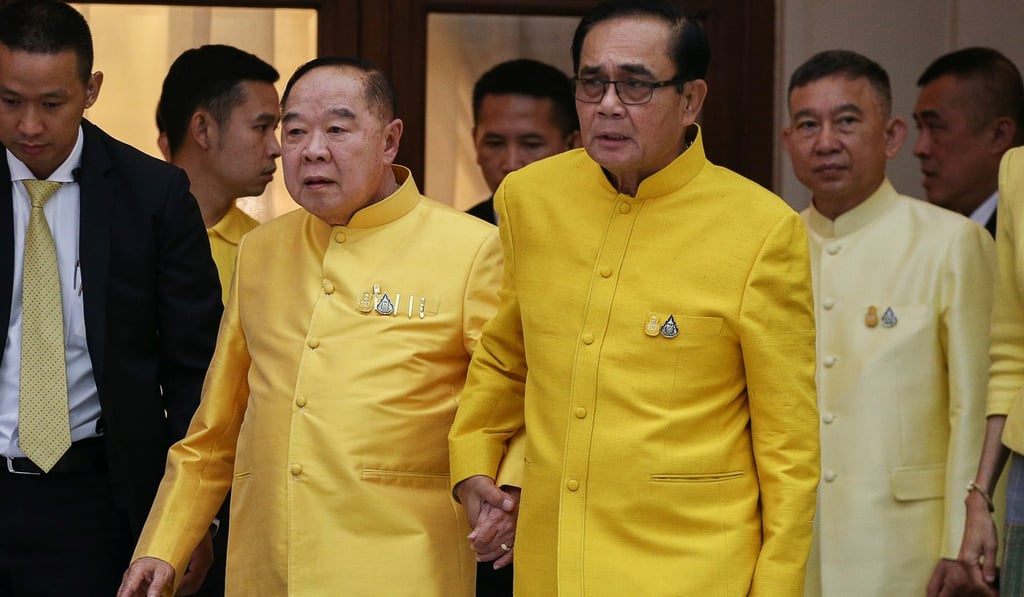Thailand’s Prime Minister Prayuth Chan-ocha rewards loyalists in new cabinet
- Long-time backers of the coup leader turned premier have been rewarded with top jobs as a government takes shape after the March election
- Critics say the appointments have been made for the sake of stabilising the ruling coalition, not for the good of the nation

Prayuth’s closest allies, Prawit Wongsuwon and Anupong Pauchinda, will continue in their respective posts of deputy prime minister and interior minister, while Prayuth himself will take on the role of defence minister, previously held by Prawit.
Meanwhile, Anutin Charnvirakul of the Bhumjaithai party and Jurin Laksanawisit of the Democrats both become deputy prime ministers. Both parties had been instrumental in helping Prayuth to form government.
The new cabinet received royal endorsement on Wednesday, some five years after the coup Prayuth led in 2014.
The installation of the new cabinet ended a period of uncertainty that followed the disputed election in March, even though some analysts say further instability is likely.
In reaching out to the other parties, Prayuth appears to be trying to put a line under the prolonged infighting between coalition factions who have been vying for his ear.
